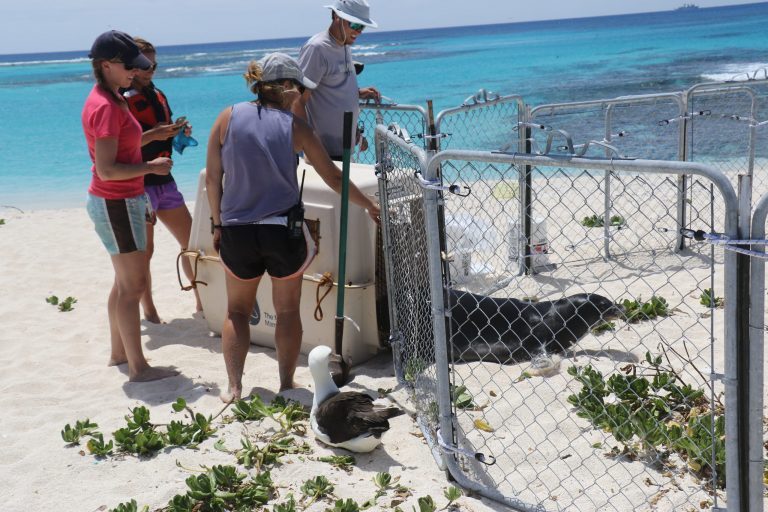Unbelievably, today’s scientists know more about space with all the planets than they do about the ocean. They say only 5% has been explored and is available to the human eye. In other words, the mysterious world hidden below the ocean’s surface is just waiting to be discovered and explored. When choosing marine biology as a college major, students have a unique opportunity to open the door to the unknown. Below, we have some key reasons why a degree in this popular STEM discipline is the best choice you can possibly make.
#1 Unforgettable Field Trips
As soon as you start your first year in the field of marine biology, your professor will be taking you on so-called ‘field trips’, and that’s the best part of majoring in this discipline! From visiting fish farms or counting snails to studying the most incredible coral reefs – you will have the chance to enjoy some of the best field trips and expand your knowledge at the same time.
#2 You’ll Study a Lot of Exciting Things
While engaged in the field of marine biology, you’ll have a great variety of areas to explore. Since it’s a vast field, a lot of educational institutions build their curriculum to cover the basics of it in your freshman year. (Thus, you may start with biology essay topics evolution or cover some related themes.) Once you’re done with the first year in college, you’ll switch to narrower fields. In general, majoring in marine biology is the key to areas like invertebrate biology, chemistry, botany, scientific diving, aquaculture, marine conservation, marine ecosystems, biodiversity, molecular biology, cell biology, vertebrate biology, genetics, oceanography, and many other sublime wonders of the scientific world.
If you’re studying marine biology, juggling tough coursework with fieldwork can be tough. Assignments on marine ecosystems, biodiversity and oceanography can be complex and require detailed research and precision. When you need help to keep up with these tough tasks, biology assignment help can be a lifesaver. Professional services offer well researched, customised solutions for lab reports, research projects and theoretical papers. By working with experts you can ensure your academic performance matches your passion for marine biology and gain valuable insights to further your knowledge.

#3 Loads of Specialization to Choose from
One of the main reasons why so many young people choose marine biology as their major is because it gives them access to a large number of possible specializations. Some of the most popular are listed below:
- Marine animal psychology
- Environmental engineering
- Invertebrate biology
- Marine audiology
- Marine data science
- Marine exploration
- Environmental engineering
#4 Enjoy Diving!
Since your field trips include visiting the most incredible locations, you’ll also have some diving opportunities. From world-famous reef diving like the Andros Coral Reef (Bahamas), Mesoamerican Reef (Caribbean Sea), and Saya de Malha (Indian Ocean) to shipwreck dives of Kittiwake (Grand Cayman, Cayman Islands), Yongala (Great Barrier Reef, Australia), and Hirokawa Maru (Solomon Islands) – there’s a lot to see and discover yourself in the process of studying. There’s no doubt that marine biology offers some of the best experiences ever. After all, what other major includes diving with turtles and sharks, and admiring some amazing corals in their natural habitat?
#5 Meeting New People from All Over the Globe
Majoring in marine biology attracts students from all over the globe. As a result, you’ll find yourself studying with a group of international classmates from Europe, Asia, Australia, Africa, and Latin America. Not only will you enjoy the multicultural environment on campus, but you’ll also have the chance to make some lifelong friendships in the process. If you choose to study in Los Angeles, you’ll benefit from world-class universities, access to coastal research facilities, and vibrant cultural diversity. Besides, you’ll learn how to live side by side with and accept other cultures. Needless to say, you will learn more about the world and the people living here and there.

#6 Kick-Start Your Professional Success
After majoring in the area of marine biology, you’ll definitely give a boost to your career as a biologist, oceanographer, marine biologist, or diver. If you’re passionate about the underwater world and would like to guarantee some nice earning potential for the future, marine biology is the course to go for—and essays on this decision can be strengthened by referencing salary expectations for life science graduates, which provides insight into financial outcomes across related STEM fields.
In addition to biology assignments, students have to face many written tasks that require creative thinking and a structured approach. Whether you’re writing essays on conservation or reflective papers on marine expeditions, custom essay writing services can help you meet deadlines without compromising on quality. These writers specialise in writing essays to your specific requirements, ensuring clarity, originality and relevance to your coursework. With such help you can focus on the wonders of marine life and keep your academic record strong.
#7 Internship Options Vary and Offer Practical Skills
As interns, students have a unique opportunity to gain precious experience and practical skills. Moreover, internships are a perfect addition to any CV when you’re on the lookout for a job in the field of marine biology. Together with the multiple academic projects completed during your studies, internships will get you prepared for a successful career. Even though the course is quite demanding, you can handle the workload if you try your best and consult professionals in the area. For instance, resources like a library, or encyclopedia (or even interviews with marine biologists) may serve as perfect helpers when it’s time to study, explore, and discover. These efforts all contribute to understanding the value of a bachelor’s degree in a specialized field such as marine biology.
Who Are the Recruiters of Marine Biologists?
When it comes to professionals that are on the lookout for marine biologists to join their corporate team, they usually give preference to:
- Organizations that are independent from the government
- College research teams
- Large industrial corporations dealing in gas exploration and offshore oil concerns
- Environmental bodies run by the government
With a bachelor’s, MA, or Ph.D. degree in marine biology, you should be ready to hone your skills nonstop and relocate frequently. However, the work in this field of study is rewarding when it comes to income and interesting like no other. Whether you’re analyzing ocean ecosystems or exploring the similarities and differences between bacteria and viruses to understand marine disease transmission, the field constantly offers new challenges and discoveries.
Recommended reads





